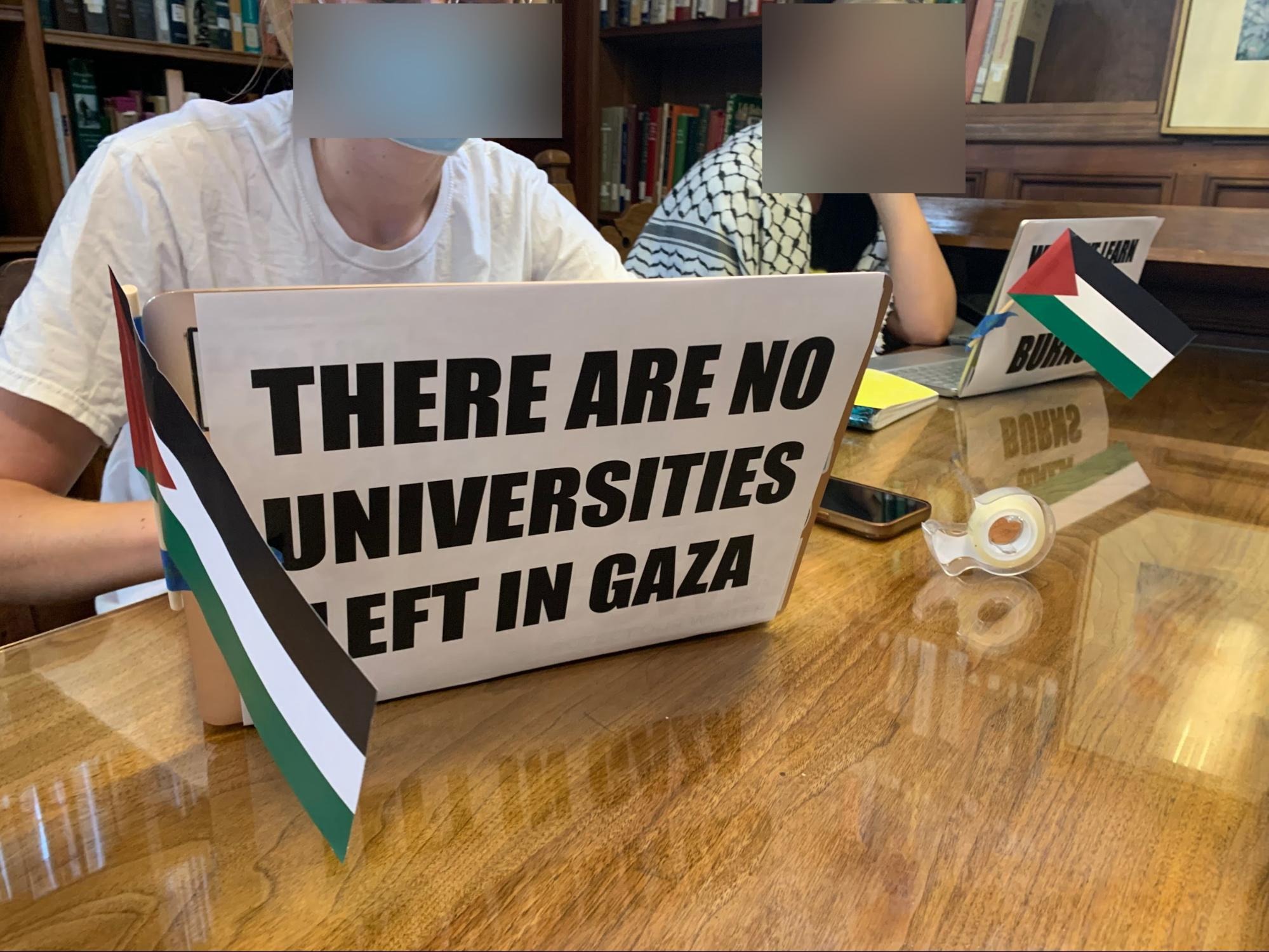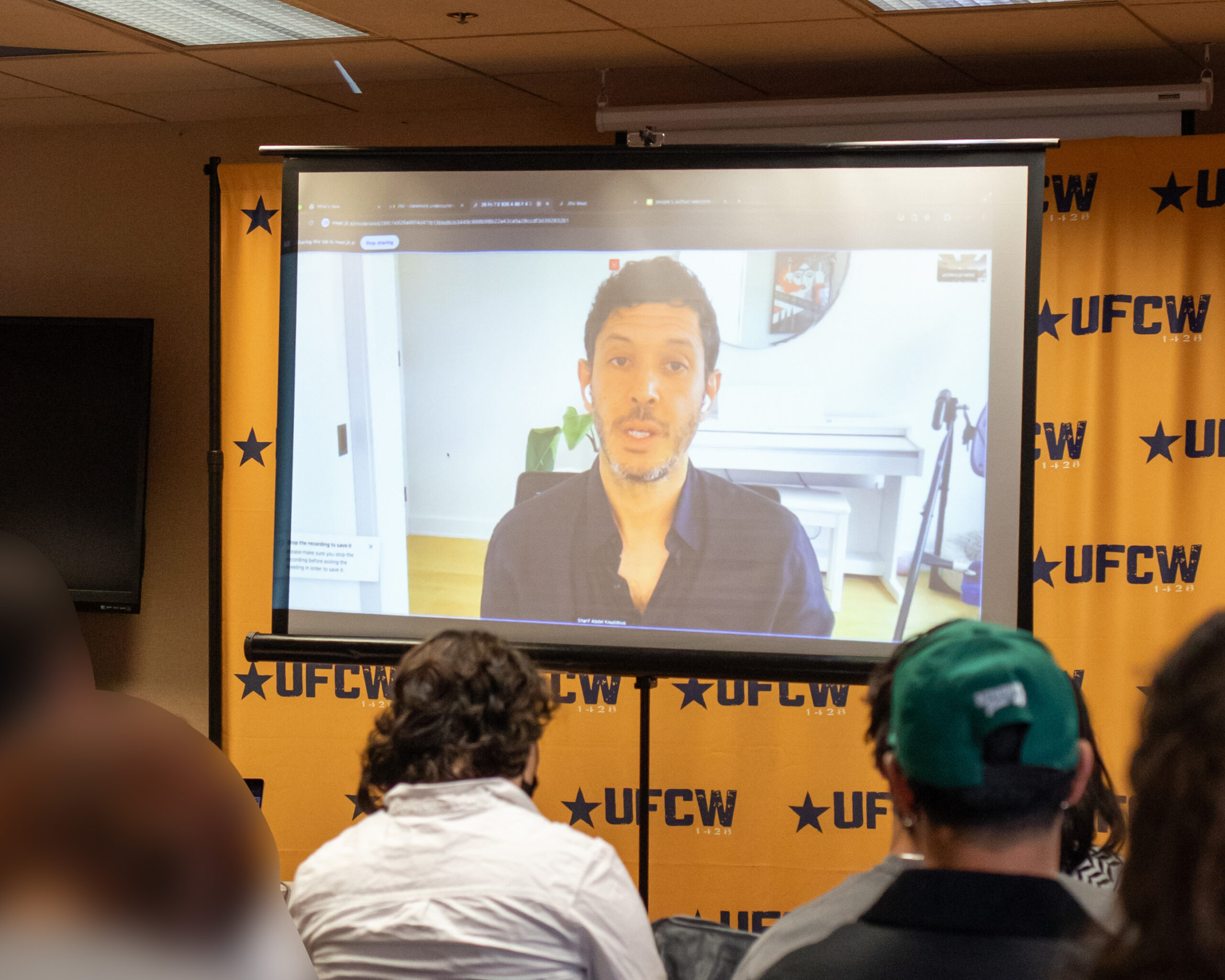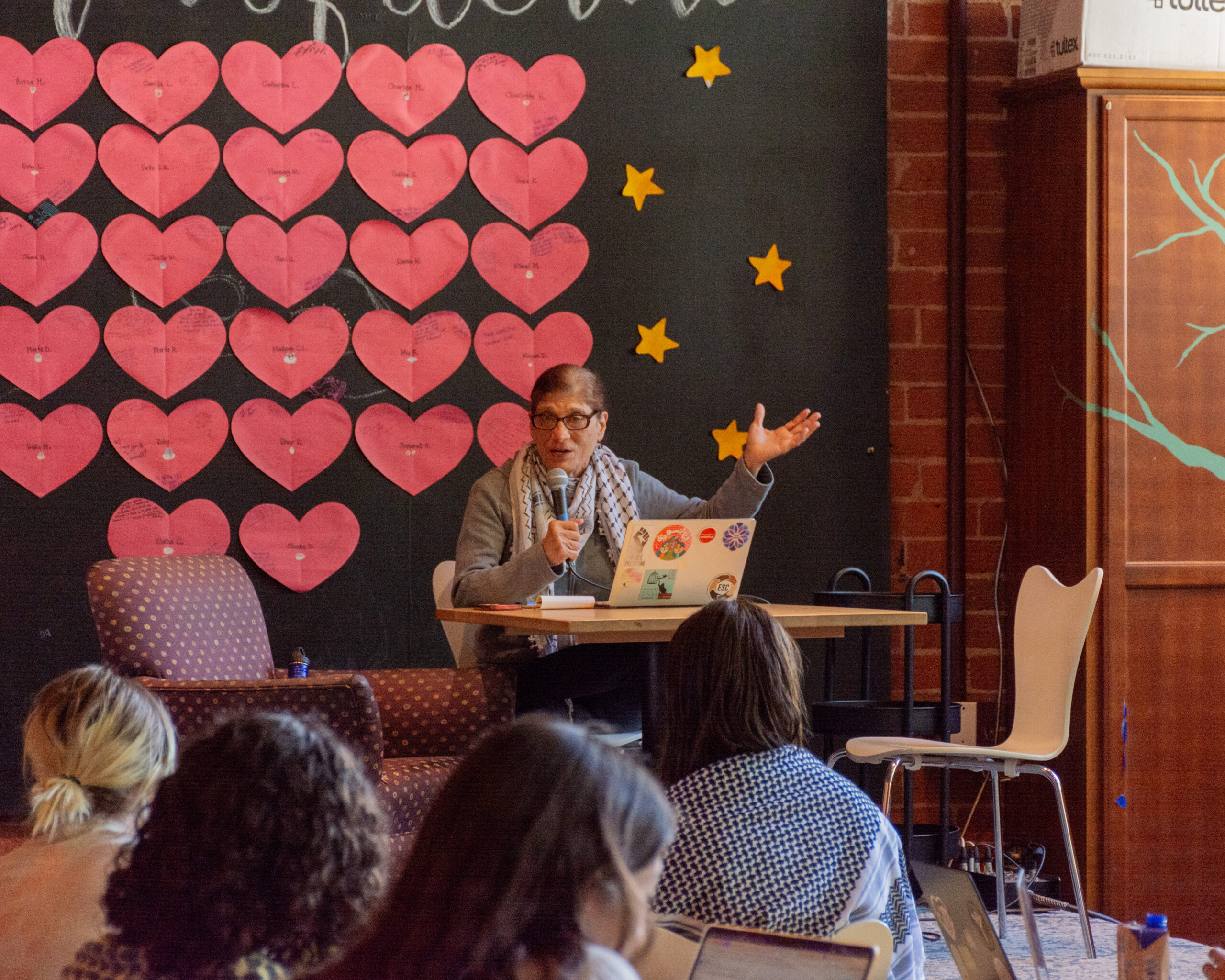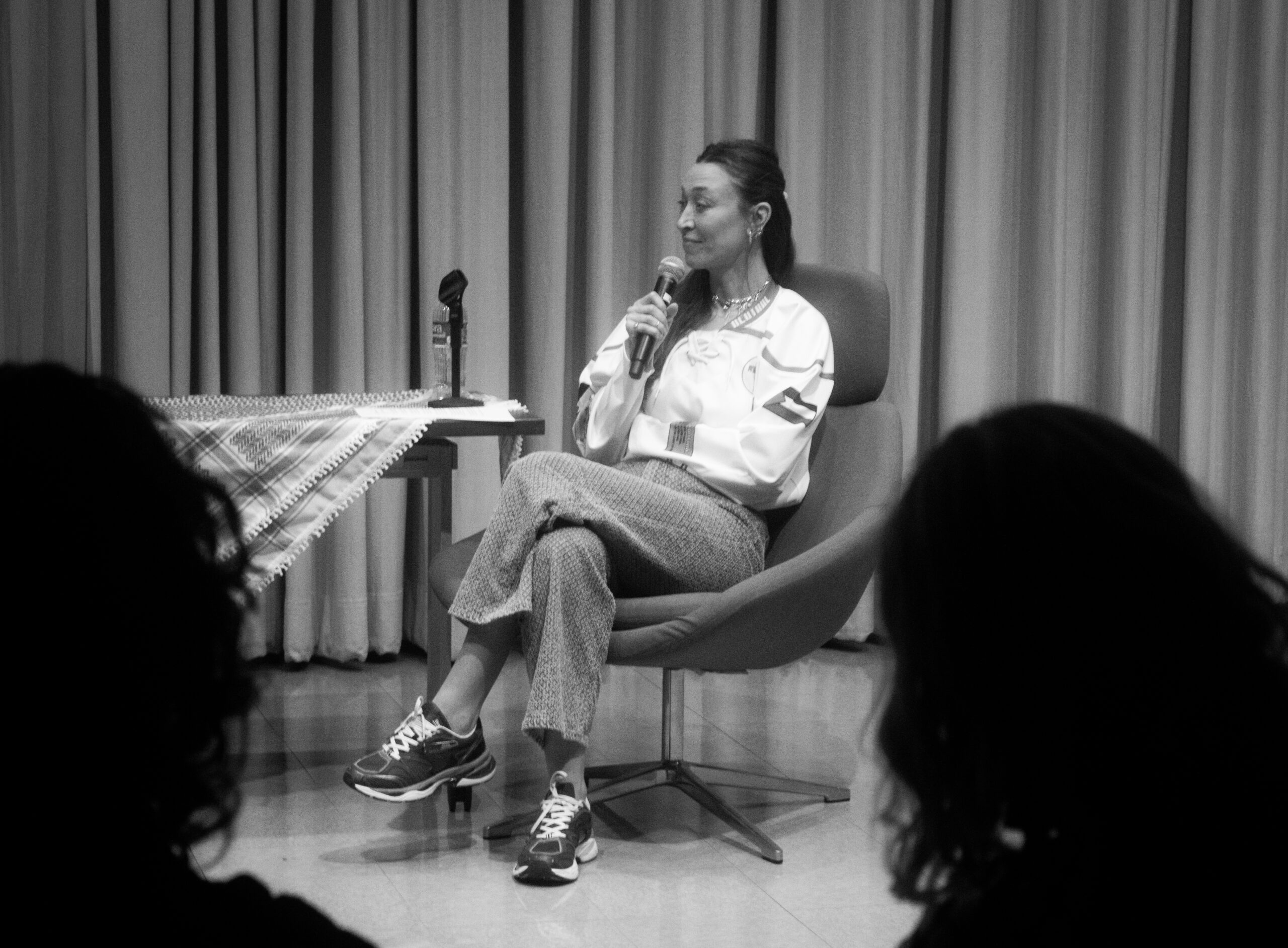
November 3, 2024
21 students wore keffiyehs and taped signs on their computers inside and outside of the library on Oct. 21.

On Oct. 21, SJP hosted a study-in at Denison Library from 1 p.m. to 3 p.m. where 21 students studied both inside Denison and seated in front of the building’s facade, wearing keffiyehs and taping signs to their computers calling out Scripps College’s purported investments in the Zionist entity.
The action was originally planned for Oct. 17, but SJP rescheduled it after Scripps College administration put into effect a new set of restrictive policies for the library the day before. The policy changes included requiring ID swipes and bag inspections for all students entering the library. Scripps also stationed Campus Safety and private security officers in front of the entrance and exit to enforce them starting on Oct. 16.
Students participating in the study-in wore keffiyehs, carried Palestinian flags, and taped signs to their computers. Several signs made reference to the Zionist entity’s scholasticide in Palestine, reading “There are no universities left in Gaza,” “Fund education not occupation” and “Scripps is complicit in scholasticide.”
Since Oct. 7, 2023, the Zionist entity has destroyed, or damaged to the point of closure, every school and university in the Gaza Strip. United Nations experts have decried this destruction as a scholasticide, or the “systemic obliteration of education through the arrest, detention or killing of teachers, students and staff and the destruction of educational infrastructure.”
The study-in at Denison is one of many similar nationwide, student-led study-ins at universities including Tulane University, Ohio State, Princeton University and Harvard University.
Mary Hatcher-Skeers, Vice President for Academic Affairs and Dean of Faculty sent a 9:07 a.m. email on Oct. 16 outlining the new Denison policies. In the email, she wrote that all visitors to the library are required to swipe in before entry, have their bags inspected and are prohibited from bringing in water bottles and all other non-“study materials.” In addition, the courtyard as well as all side rooms — the Holbein Room, the Ella Browning Scripps room, and the rare books room — have been blocked off.
The protocol changes and increased surveillance at Denison were implemented “to protect against the escalation that has recently occurred,” Hatcher-Skeers wrote, presumably referencing students’ takeover of Pomona College’s Carnegie Hall on Oct. 7. This increase in repression also follows Pomona’s decision to ban 15+ Scripps students from their campus, as well as Pomona President Gabi Starr’s decision to unilaterally suspend 12 Pomona students for a full academic year.
In a statement written by a group of Denison student workers on Oct. 17, Denison staff and student workers were not given any notice of these protocol changes or told that Campus Safety would be stationed at the library.
One Denison student worker who requested to remain anonymous due to safety concerns, connected the surveillance at Denison to Scripps administration’s abrupt closure of the Motley on Oct. 5 leaving 50 student workers without a job. They said that these “losses of student space” demonstrated how “Scripps student workers, specifically those who are mainly on work study, are being left out of the conversation and targeted against when it comes to the discussion of Palestine.”
The number of visitors to Denison since the policy changes has already dropped significantly, with as much as one-fourth of the previous number of students visiting in a week, according to a Denison student worker.
“[The administration] taking away half of the space, making it inaccessible…is really impactful from a library code of ethics standpoint,” the student worker said, referencing the American Library Association code of ethics’ call to “resist all efforts to censor library resources”.
According to the student worker, Campus Safety and CSC will continue to be stationed outside the library until the end of the semester.
“A lot of us who work there…our colleagues said that it was just against everything that we work for and stand for,” they said. “And it’s also just intimidating and not welcoming to be working in a space that is so heavily policed.”
The student worker also called out the surveillance as a case of the “Palestine exception,” a pattern where established institutions deem speech about Palestine illegitimate and outside of the bounds of acceptable free speech.
“[Since] this was the first student organized action [at Scripps] for divestment in the military and other institutions that are aiding the ongoing genocide in Palestine, I think it really is a demonstration of how extreme measures will be taken when Palestine is brought up because of the Palestine exception.”


Commentary

Palestine

Palestine

Undercurrents reports on labor, Palestine liberation, prison abolition and other community organizing at and around the Claremont Colleges.

Issue 1 / Spring 2023
Setting the Standard
How Pomona workers won a historic $25 minimum wage; a new union in Claremont; Tony Hoang on organizing
Read issue 1